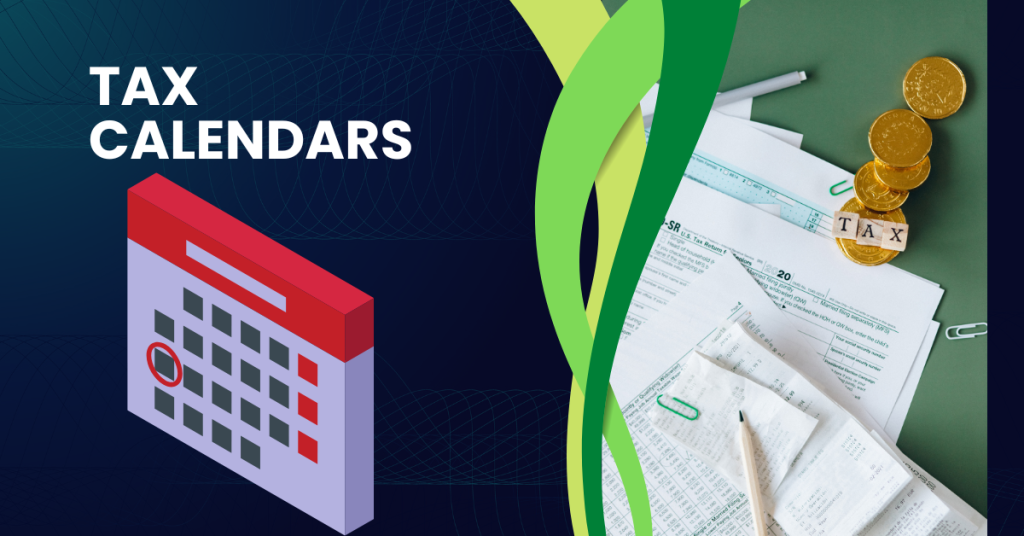Why Your Startup Needs a Tax Calendar

Starting a business is both an exciting and terrifying venture. Owning a business can feel empowering, liberating, and enrichening. It can also be stressful, frustrating, and confusing. With so many responsibilities on a new business owner’s plate, taxes can seem like a menacing afterthought. Such thinking is understandable, but it carries with it some alarming consequences.
For non-business owners, tax season is thought of as starting at the beginning of the year and continuing until the middle of April. However, C-Corps, Partnerships, and S-Corps alike all have tax deadlines in every season. The final deadline for the 2023 tax year comes in December! New business owners who aren’t used to this system could run into serious trouble if they don’t keep up with their business tax obligations.
Tax Calendars Can Help

That’s why a tax calendar can be a lifesaver to the company. Since there are so many different forms due at different times, one person can be hard pressed to keep up with it all. Making the matter worse is the fact that no 2 years ever seem to be alike in tax season. Be it at the state level, the federal level, or both, the rules on what taxes are due when seem to change all the time.
Below, you can see a full breakdown of 2023 tax deadlines for federal and (Delaware) state taxes. Delaware is included over the other states because many businesses choose to incorporate it in their state. Included are deadlines that have already passed as well as deadlines yet to come. The January deadline for payments to employees and independent contractors begins the tax season, and the December deadline for estimated 4th quarter tax payments ends it.
Conclusion
Don’t let your business get swept away by tax deadlines. If you keep an organized schedule, you have nothing to fear.




